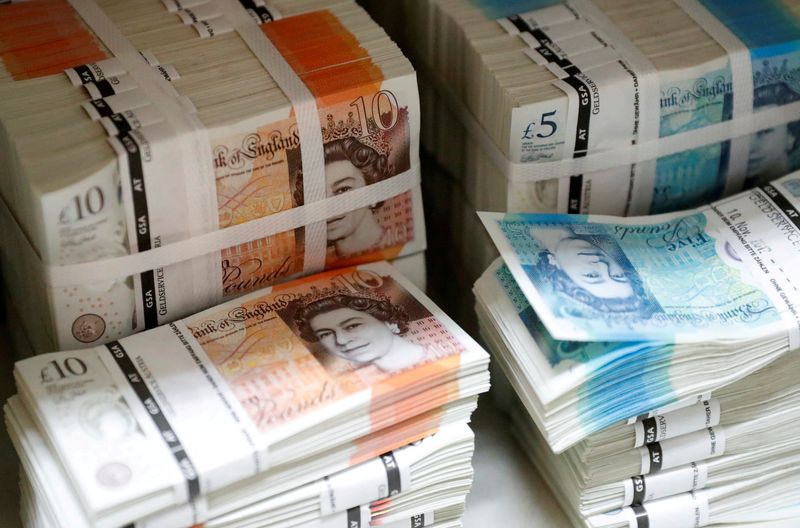By Samuel Indyk
LONDON (Reuters) - Sterling was falling back towards a three-week low against the dollar on Thursday, as investors remained cautious after the pound's recent rally, with the economy stagnating and the labour market softening.
Data on Tuesday showed Britain's jobless rate rose to 3.9% in the three months to March, while basic pay increased 6.7%, below expectations in a Reuters poll.
"You have persistently high core inflation, very slow growth and a softening labour market," said TraderX strategist Michael Brown. "Things don't look great at the moment so it's perhaps no surprise to see sterling lower."
The pound was last down 0.4% against a broadly stronger dollar to $1.2435. On Wednesday it hit a three-week low of $1.2422.
The dollar has benefitted from optimism around the debt ceiling, with U.S. President Joe Biden and senior congressional Republican Kevin McCarthy underscoring their determination to reach a deal to raise the $31.4 trillion debt limit and avoid an unthinkable default.
High beta currencies - ones that tend to be more volatile - such as the pound, could benefit on a debt ceiling resolution, TraderX's Brown added.
"Potentially if you see equities rally a little more this could be supportive of the pound, but there are other currencies I'd rather get exposure to that through, such as the Aussie and Kiwi dollars."
Stocks across the globe rallied on Wednesday and Thursday as traders bet that the U.S. would avoid a default.
Eyes were also on Westminster where Bank of England officials were providing testimony in front of parliament's Treasury Select Committee.

Bank of England Deputy Governor Dave Ramsden told the committee that the rate at which the central bank reduces its holding of government bonds was more likely to increase than decrease, as it unwinds its quantitative easing programme.
The euro was up 0.2% against sterling to 86.94 pence.